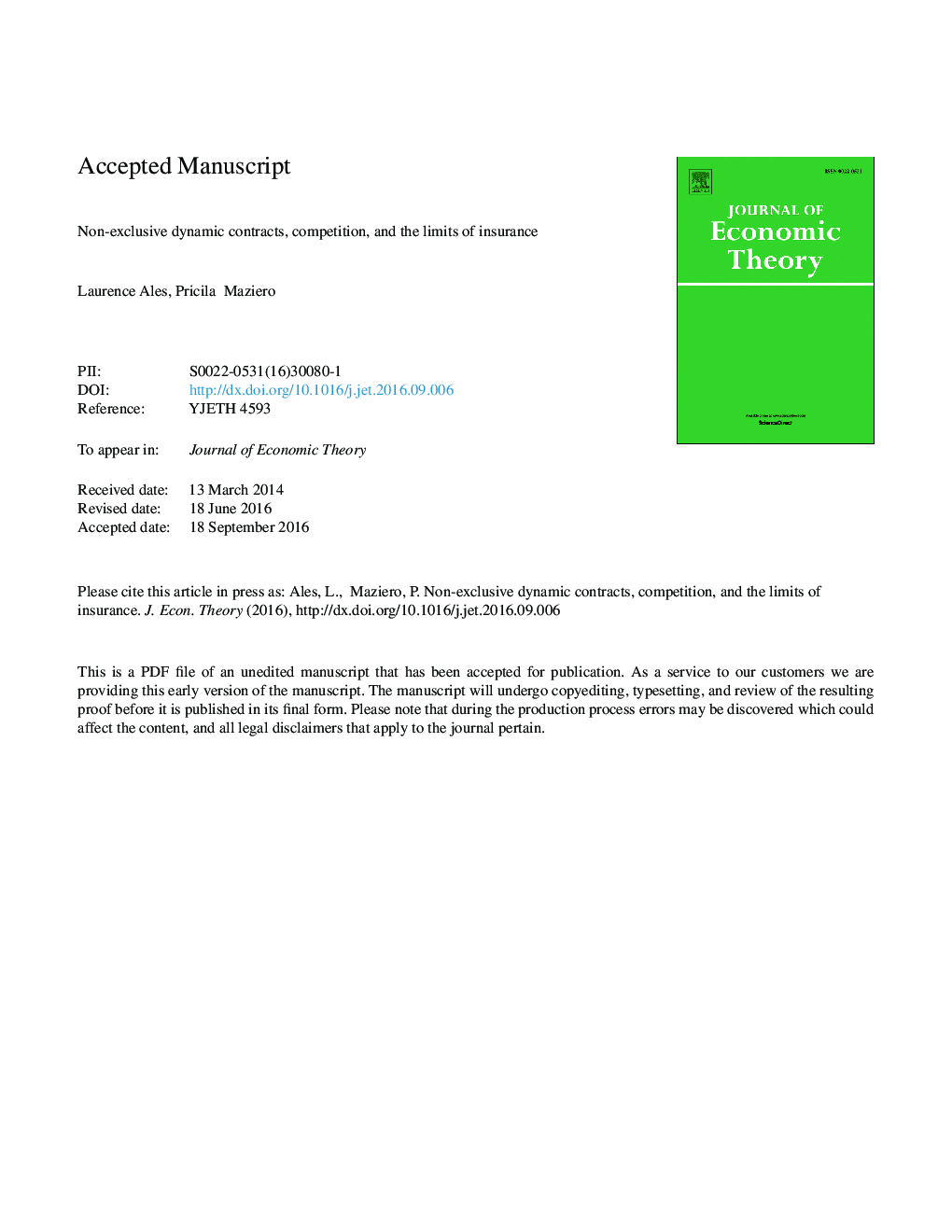| Article ID | Journal | Published Year | Pages | File Type |
|---|---|---|---|---|
| 7359387 | Journal of Economic Theory | 2016 | 37 Pages |
Abstract
We study how the presence of non-exclusive contracts limits the amount of insurance provided in a decentralized economy. We consider a dynamic Mirrleesian economy in which agents are privately informed about idiosyncratic labor productivity shocks. Agents sign privately observable insurance contracts with multiple firms (i.e., they are non-exclusive). Contracts specify both labor and savings requirements. Firms have no restriction on the contracts they can offer and interact strategically. In equilibrium, contrary to the case with exclusive contracts, a standard Euler equation holds, and the marginal rate of substitution between consumption and leisure is equated to the worker's marginal productivity. Also, each agent receives zero net present value of transfers. These conditions imply the equilibrium allocation is equivalent to a standard incomplete markets model. To sustain this equilibrium, more than one firm must be active and must also offer latent contracts to deter deviations to more profitable contingent contracts. In this environment, the non-observability of contracts removes the possibility of additional insurance beyond self-insurance.
Related Topics
Social Sciences and Humanities
Economics, Econometrics and Finance
Economics and Econometrics
Authors
Laurence Ales, Pricila Maziero,
